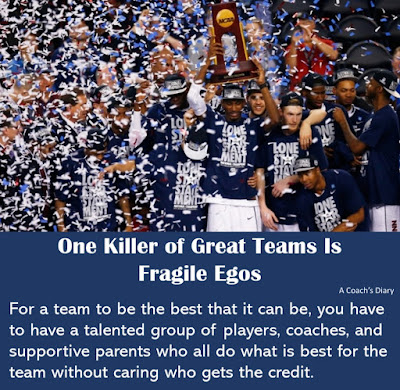Don't Just Wish For It - Work For It

As we leave 2019 and head into 2020, let's leave laziness, excuses and bad habits behind as well. Let's make a deal - we won't live by wishing; we will live by doing. Let's go to work this year on our habits and our goals. Let's use this year to establish high quality habits that will propel us to live our best lives, for the rest of our lives. COACHES: We won't just wish that our players come in early and stay late in 2020 - we are going to find ways to motivate and encourage them to do so. We will make sure that we are ready and at practice early and staying late, prepared and ready to receive our athletes. We won't hope that our players go hard in practice and are engaged - we are going to design engaging practices that is full of teaching and fun competition. We are going to research ways to communicate to our kids throughout practices so that they stay engaged. PLAYERS: We won't wish that we make that team, that we st...









